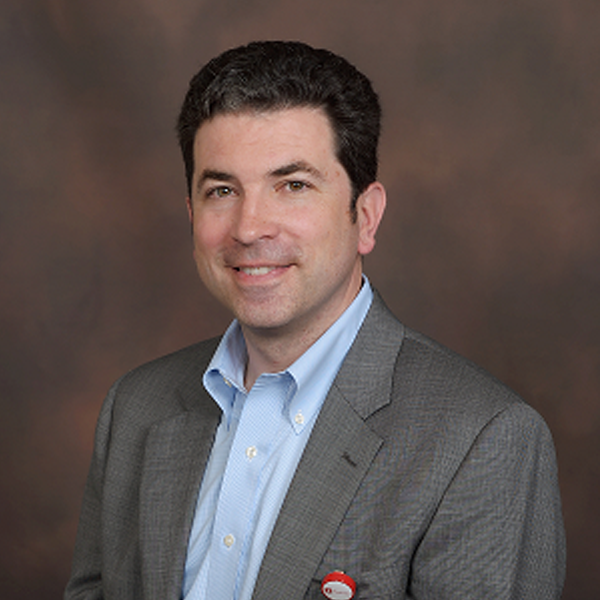Takeaway
Ask. It's scary. But ask anyway.

Connecting with Patients | February 28, 2018 | 4 min read
By Brent Beasley, MD, University of Oklahoma
We’re re-featuring this piece for June’s PTSD Awareness Month.
I was taught in medical school that a patient’s social history is essential to understand, impacting everything that occurs within the four walls of a clinic exam room. It provides the context for the patient’s story. It is the bedrock on which the patient-physician relationship is built. It’s the texture in the patient’s self-concept and worldview.
So, for 24 years I worked to establish trusting and open relationships with all my patients. I thought I had it down, and could be taught nothing new about the social history.
Adverse childhood experiences
In 2016 a colleague gave a talk about ACEs–Adverse Childhood Experiences. ACEs impact later adult mental and physical health, and are additive–the more ACEs, the worse morbidity. She encouraged us to ask the patient directly if they’d any ACEs.
I’m pretty adept at teasing out anxiety and panic disorder when people present with ostensible diagnoses like “chest pain,” “shortness of breath,” and “tingling in my arms and chest.” But, asking candidly about ACEs–that was something I never did. A few patients in my career told me about their experiences, but that was unprompted.
Recounting the pain
A few months later, a young patient came to see me with chest pains. I began the interview with a technique taught by my old mentor, and asked the patient to recount the most recent chest pain, moment by moment. I began with, and stopped her frequently to ask, “What was going on around you at that time? What did you think about that? What did you feel when that happened?” Afterward, I diagnosed panic disorder and took the next step suggested by my colleague, and asked, “Did anyone ever hurt you as a child, physically or sexually?”
“I’ve never told anyone that.”
Her eyes lowered and she looked at her hands. After a few moments of silence, and still looking down, she told me how her stepfather molested her repeatedly as a young girl. Listening to her story felt horribly painful to me, and I could only imagine what that little child inside her mind experienced. She ended the recollection with, “I’ve never told anyone that.”
Fortunately, we have a social worker in our clinic, and I solicited her help–help finding resources, help with getting her set up with counseling . . . and help with the disturbing, sickening feeling inside me. I worried that I’d just opened a can of worms, and I felt very ill-equipped, professionally and personally, to deal with what came out.
I wish I could say that this pattern has been a rare occurrence since then, that I just stumbled into unlocking Pandora’s Box in a very unusual situation. But, no. I’ve heard it over and over since.
I made a decision to ask every patient with a new diagnosis of anxiety and panic disorder about ACEs. And too often, the interview has ended with, “I’ve never told anyone that.”
It’s not a gender-specific issue. Most recently, this occurred with a young man in his mid-twenties. He had panic attacks and thold me that for three years, every week, his stepfather raped him. And he said, “I’ve never told anyone that.”
The research on this is clear and verifiable. Back in 1998, Kaiser Permanente found that among their more than 9,000 respondents to a survey, more than half had experienced at least one ACE, and a quarter had experienced more than two. More recently, The Department of Health and Human Services Report on Child Maltreatment in 2011 reported one in five girls and one in 20 boys referred to Child and Protective Services experienced child sexual abuse.
The prevalence is shocking to me, and I leave each revelation dismayed at the burden my patients carry into adulthood. It’s hard to deal with as a physician and as a human being. It’s a darkness I have not known or experienced. I worry about unearthing these boulders in my patients’ psyches.
One patient of note in my career was serially sexually abused as a child. She worked with a counselor for 20 years to achieve some sense of peace. But, all of her daily interactions continue to be shaped and experienced through a lens that says, “This person, this situation may not be safe. I have been abused in the past. It may occur again.” When I open the door on these conversations with my anxious patients, I envision setting their feet on a long and difficult journey ahead.
Continuing to ask the question
“How could anyone do that to a child?” I ask myself. It hurts, feels heavy, saps my energy, and leaves a sickening pit in my stomach. I talk to my wife and my priest about what patients tell me and try to process. I’m thankful they’re willing to listen.
So, I will continue to ask the question. And, I expect I will hear, “I’ve never told anyone that,” again and again. After 24 years, I’ve learned that I still have a lot to learn–about medicine, and about the human condition.
This piece expresses the views solely of the author. It does not necessarily represent the views of any organization, including Johns Hopkins Medicine.

